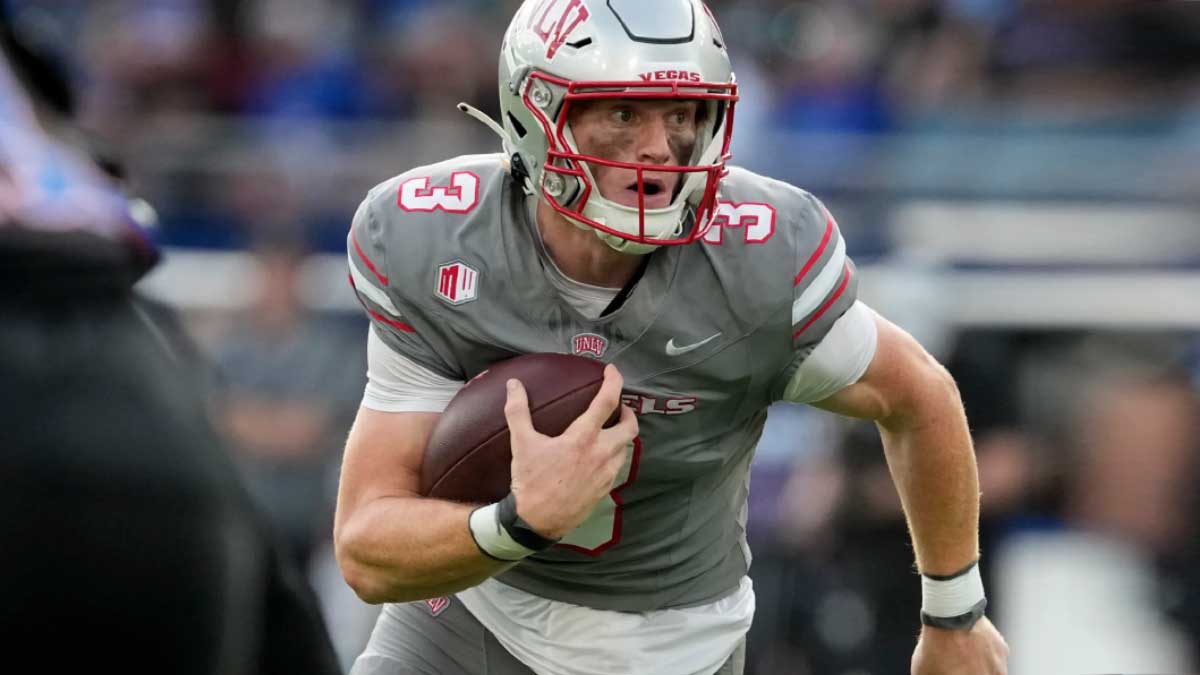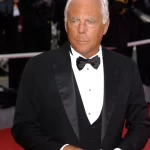- Home
- Billionaires
- Investing Newsletters
- 193CC 1000
- Article Layout 2
- Article Layout 3
- Article Layout 4
- Article Layout 5
- Article Layout 6
- Article Layout 7
- Article Layout 8
- Article Layout 9
- Article Layout 10
- Article Layout 11
- Article Layout 12
- Article Layout 13
- Article Layout 14
- Article Sidebar
- Post Format
- pages
- Archive Layouts
- Post Gallery
- Post Video Background
- Post Review
- Sponsored Post
- Leadership
- Business
- Money
- Small Business
- Innovation
- Shop
Recent Posts
Matthew Sluka Departs UNLV: Issues with NIL Guarantees

In a surprising turn of events, Matthew Sluka, the starting quarterback for the undefeated University of Nevada, Las Vegas (UNLV) football team, announced on social media late Tuesday that he would not be returning for the remainder of the 2024 season. His decision is reportedly rooted in a dispute over a promised payment related to his transfer to the school, highlighting the complexities of the evolving landscape of college athletics under the new name, image, and likeness (NIL) regulations. These rules allow student-athletes to receive compensation from third parties, a significant shift in the dynamics of college sports.
Sluka’s announcement comes as a shock to many, particularly given UNLV’s strong start to the season. The team has been performing exceptionally well, boasting an undefeated record and achieving its first-ever top 25 ranking in the coaches’ poll, sitting at No. 23. Sluka, who previously played at Holy Cross from 2020 to 2023, has played a pivotal role in this success. Through just three games, he has emerged as both the leading passer and rusher for the team, orchestrating upset victories against notable Big 12 opponents, Houston and Kansas. With the team aiming for its first-ever berth in the College Football Playoff, Sluka’s departure could have significant implications for their season.
The roots of Sluka’s exit trace back to what he described as “certain representations” made during his recruitment that were “not upheld.” According to reports, Sluka was verbally promised a payment of $100,000 by an assistant coach to facilitate his transfer to UNLV, but he never received these funds. Sluka’s agent, Marcus Cromartie, a former NFL cornerback, confirmed this to the Associated Press, stating that the financial assurances were not met. Instead, Sluka was later offered a much lower amount of $3,000 per month over four months, totaling just $12,000.
Cromartie elaborated on Sluka’s feelings of betrayal, noting, “I think Matt felt lied to…he just wanted to stand up for himself.” This sentiment reflects a growing concern among athletes regarding the commitments made by schools and their representatives in an era where financial incentives have become a critical component of recruitment and retention. Bob Sluka, Matthew’s father, expressed frustration as well, claiming that UNLV’s head coach, Barry Odom, “refused to give us the money” that was initially promised.
The broader implications of Sluka’s departure resonate throughout the college sports world, particularly as it relates to the nascent NIL landscape. Since legal changes were enacted in 2021, allowing student-athletes to profit from their name, image, and likeness, the recruiting process has been increasingly influenced by financial considerations. While schools cannot directly pay athletes, NIL collectives have emerged, pooling resources from alumni and supporters to offer lucrative contracts to high school recruits and college transfers. This system has been described as resembling the “Wild West,” as athletes navigate unregulated waters with varying degrees of transparency and assurance.
In Sluka’s case, it appears that UNLV’s NIL collective was not even aware of the $100,000 commitment that was allegedly made. Rob Sine, a representative of the organization, stated that they only provided an unrelated $3,000 fee to Sluka. This lack of communication raises further questions about the consistency and reliability of promises made to athletes during the recruitment process.
The timing of Sluka’s departure is particularly significant for UNLV, which had high hopes for the season. The team not only aims for a top position in the Mountain West Conference but also has a legitimate shot at making history by securing a spot in the College Football Playoff. Currently, UNLV is the second-highest ranked Group of Five team in the Associated Press poll, trailing only Boise State, a fellow conference rival.
Sluka’s journey to UNLV has been marked by notable accomplishments. Before joining the Rebels, he led Holy Cross to an undefeated regular season and a quarterfinal appearance in the FCS playoffs in 2022. He is a Locust Valley, New York native and attended Kellenberg Memorial High School on Long Island, as well as the Peddie School in New Jersey. Throughout his pre-college career, he accounted for an impressive 101 touchdowns, demonstrating his capability and potential as a quarterback.
As Sluka steps away from the program, questions remain about the future of the UNLV football team and how they will adjust to his absence. The team’s coaching staff will need to pivot quickly to ensure that they maintain their momentum in the upcoming games. For Sluka, the decision to leave may represent a critical moment of self-advocacy in a landscape that is rapidly changing, prompting reflection on the commitments made by schools in the high-stakes world of college football recruitment.
His departure serves as a cautionary tale about the promises that accompany the NIL era, highlighting the importance of transparency and accountability in college athletics. As the conversation around NIL continues to evolve, Sluka’s situation may influence how other athletes approach their decisions regarding recruitment, transfers, and the financial commitments associated with their college careers.
Recent Posts
Categories
- 193cc Digital Assets2
- 5G1
- Aerospace & Defense46
- AI37
- Arts3
- Banking & Insurance11
- Big Data3
- Billionaires446
- Boats & Planes1
- Business328
- Careers13
- Cars & Bikes76
- CEO Network1
- CFO Network17
- CHRO Network1
- CIO Network1
- Cloud10
- CMO Network18
- Commercial Real Estate7
- Consultant1
- Consumer Tech180
- CxO1
- Cybersecurity68
- Dining1
- Diversity, Equity & Inclusion4
- Education7
- Energy8
- Enterprise Tech29
- Events11
- Fintech1
- Food & Drink2
- Franchises1
- Freelance1
- Future Of Work2
- Games141
- GIG1
- Healthcare78
- Hollywood & Entertainment186
- Houses1
- Innovation42
- Investing2
- Investing Newsletters4
- Leadership65
- Lifestyle11
- Manufacturing1
- Markets20
- Media193
- Mobile phone1
- Money13
- Personal Finance2
- Policy567
- Real Estate1
- Research6
- Retail1
- Retirement1
- Small Business1
- SportsMoney33
- Style & Beauty1
- Success Income1
- Taxes2
- Travel10
- Uncategorized8
- Vices1
- Watches & Jewelry2
- world's billionaires415
Related Articles
Fortnite Sets 14.3 Million Player Record with Star-Studded Concert
Fortnite continues to defy expectations, proving that it remains a force in...
By 193cc Agency CouncilNovember 30, 2024Davis vs. Roach Jr. Set for March 1 at Barclays Center
Gervonta “Tank” Davis fans will need to adjust their calendars once again,...
By 193cc Agency CouncilNovember 30, 2024Elon Musk Sparks Speculation Over Potential Hasbro Acquisition
Elon Musk is known for his knack for shaking up industries and...
By 193cc Agency CouncilNovember 30, 2024Fortnite Chapter 6: Japanese World, Giant Bosses & Collabs
Fortnite’s Chapter 6 Season 1 is on the horizon, and fans are...
By 193cc Agency CouncilNovember 29, 2024















Leave a comment